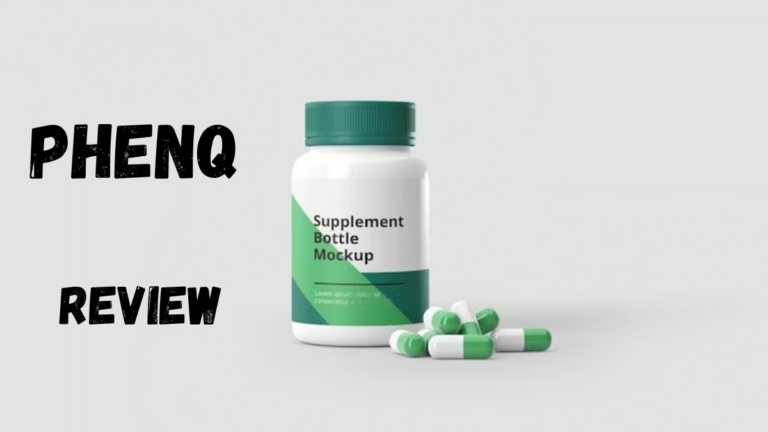10 Warning Signs of Mold Toxicity: Protecting Your Health
Mold is a fungus that grows rapidly when conditions are wet and humid. Everything we eat, drink, and use contains it. While not all molds are bad, some produce mycotoxins that are dangerous to humans. After being exposed to mold and its mycotoxins for a long time, humans become poisonous to them.
What is Mold Toxicity?
Exposure to mycotoxins generated by molds leads to mycotoxicosis, also known as mold poisoning. Mycotoxins are harmful compounds produced by some molds during growth. Air, food, and surfaces are all susceptible to contamination from these mycotoxins. Mycotoxins have a broad variety of negative impacts on human health when exposed to them over lengthy periods.
Common Types of Mold
When examining possible symptoms, it is important to first identify the most prevalent indoor molds. Fungi such as Stachybotrys, Aspergillus, Penicillium, and Cladosporium belong to this category. Different molds produce different mycotoxins, which accounts for a great variety of mold poisoning symptoms.
10 Warning Signs of Mold Toxicity
Persistent Respiratory Issues
Persistent respiratory issues are a frequent symptom of mold poisoning. Mold exposure may be to blame for persistent respiratory issues including coughing, wheezing, and shortness of breath.
Unexplained Fatigue
Fatigue that persists even after enough rest should be taken seriously. Extreme fatigue brought on by mold poisoning might make it hard to go about everyday life.
Skin Rashes and Irritation
Rash, itching, and hives are all symptoms of mold poisoning on the skin. Despite their transience, these signs should not be disregarded.
Headaches and Migraines
Chronic headaches and migraines may be triggered by being around mold. If you have headaches regularly, you might want to look for mold in your house.
Cognitive Impairment
Toxic mold can impair mental performance. You may find that your memory is impaired, that you can’t focus, or that you have “brain fog.”
Digestive Problems
Mold poisoning can manifest itself through persistent gastrointestinal symptoms such as nausea, diarrhea, and abdominal discomfort.
Muscle and Joint Pain
Muscle and joint discomfort for no apparent reason is extremely painful. Mold exposure has been linked to inflammation, which can cause a variety of symptoms.
Sensitivity to Light and Sound
Neurological symptoms of mold poisoning might include hypersensitivity to light and sound. It may add to the sensation of being overwhelmed or uncomfortable.
Increased Allergies
Mold may be the unsuspected cause of a sudden onset of allergies or a worsening of preexisting allergies.
Mood Swings and Depression
Mold poisoning can have psychological repercussions as well. Mold exposure has been related to mood disorders like mania and sadness.
Testing for Mold Toxicity
It is critical to see a doctor if you have any of the above symptoms and suspect mold contamination. To confirm the diagnosis, they may do tests on your blood, urine, or even mold spores in your home.
Treatment and Prevention
To treat mold toxicity, the source of exposure must be cut off and the body’s natural detoxifying mechanisms must be aided. To avoid mold growth, it’s important to keep indoor spaces dry and aired, fix any water leaks right once, and use dehumidifiers in moist rooms.
Long-Term Effects of Mold Toxicity
While mold toxicity’s immediate symptoms are troubling, it’s equally important to think about the long-term repercussions. Respiratory, neurological, and immune system illnesses are just some of the chronic health problems that can result from prolonged exposure to mycotoxins. Preventing these long-term problems requires timely attention to mold growth.
Mold Toxicity and Indoor Air Quality
The condition of the air within our homes has a major impact on our health. Indoor air quality can be drastically impacted by mold growth. People who spend a lot of time inside, including those who work in an office or from home, should be especially careful about keeping the air clean and limiting their contact with mold.
Legal Implications
Court cases involving toxic mold sometimes include issues in the workplace or with renters. Landlords and companies alike must provide a safe and healthy environment for their tenants and customers. Legal action may be necessary to recoup medical expenses and other damages if mold concerns are disregarded and people are sick or hurt as a result.
Mold Toxicity and Allergies
Extreme allergic responses may be brought on by mold poisoning. Mold exposure can exacerbate and prolong allergy symptoms in those who are susceptible. If you have allergies and think mold could be to blame, seeing an allergist is crucial.
Mold Toxicity in Children
When it comes to the health risks posed by mold, children are typically more at risk than adults. Children are more likely to be affected by mycotoxins since their immune systems are still maturing and their bodies are smaller. Don’t wait to take your child to the doctor if you observe any of the symptoms, and look about the house for sources of mold if you find any.
Conclusion
Mold poisoning is a major health risk that is frequently misdiagnosed until it is too late. You may safeguard yourself and your loved ones against mold’s potentially dangerous consequences by being aware of the warning symptoms and acting swiftly.
FAQs
Q: How can I test my home for mold?
You can hire a professional mold inspector or purchase DIY mold testing kits to check your home for mold.
Q: Is mold toxicity reversible?
With early detection and proper treatment, mold toxicity can often be reversed.
Q: Can mold toxicity affect pets?
Yes, mold toxicity can affect pets as well. Watch for signs like respiratory issues and changes in behavior.
Q: Are all molds toxic?
No, not all molds are toxic. Some are harmless, while others produce mycotoxins that can be harmful.
Q: What should I do if I suspect mold in my workplace?
Report the issue to your employer or building management immediately and request a professional mold inspection.







